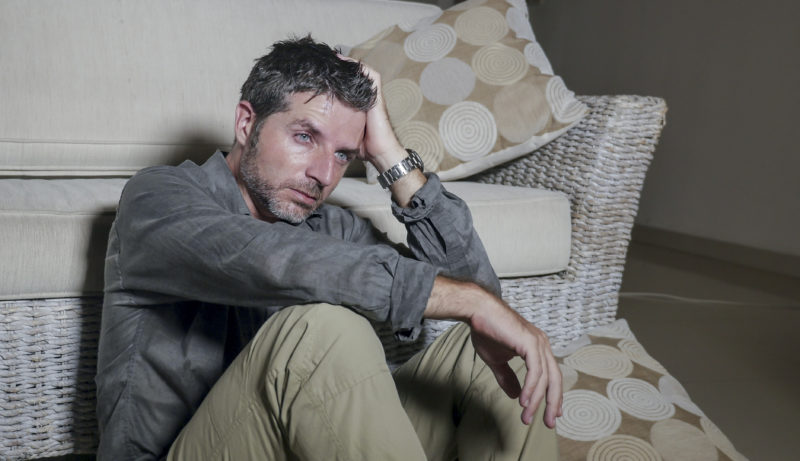
Men Often Suffer in Silence as Victims of Domestic Violence
They are told to “man up.” They are told that “guys don’t cry” and that “it’s not a big deal.” They are encouraged to ignore the cuts or bruises that may develop on their skin, in addition to the cuts and bruises on their hearts and souls.
Men experience domestic violence, too. No one is suggesting that it is to the extent that women experience domestic violence and abuse. However, having men suffer in silence because they are not being hurt to the same extent is not an answer that solves a major problem.
Facing the stigma
Silencing men going through domestic violence and abuse encourages the toxic culture that tells men to remain silent, because speaking up would be considered counter to what it means to be a man.
The truth is that a man is a man, regardless of whether or not he speaks up regarding any violence or abuse that he faces. His identity is not conditional to societal or cultural expectations. It is his own.
This perception found in society and culture is what stigmatizes speaking on the violence against an intimate partner, especially if that partner is male. According to a study published in the Violence and Victims journal, violence perpetuated against males is perceived as les serious and more justified.
In addition, the study stated that male victims are perceived as being more blameworthy than female victims, due to traditional gender role attitudes and histories of intimate partner violence being associated with greater blaming of victims and justification of perpetrators across contexts.
This is surprising, given that the same comprehensive study also reported that while 32 percent of women in the study have been victims of physical violence by their partners, men were not far behind with 28 percent having reported physical violence against their persons.
This is comparable to the statistics provided by the National Domestic Violence Hotline through the Corporate Alliance to End Partner Violence. According to the organization, as well as the Centers for Disease Control, 1 in 4 women and 1 in 7 men ages 18 and older in the United States have been the victim of severe physical violence by an intimate partner in their lifetime.
Reporting and reactions
Reporting and reaction to an attack can vary for men facing this type of violence and abuse. They may allow their female partner to continue to strike them, or they may attempt to hide in some type of safe space, where they can seek refuge, according to licensed counselor and professor at Northern Illinois University Suzanne Degges-White.
They also may become unsure of how serious law enforcement may take these allegations. Does a man require bruising, broken bones, cuts, scrapes, or physical evidence to prove that he was a victim of physical domestic violence at the hands of his female partner?
These are the types of questions that men ask, and if you are married, you may find yourself silenced by your own sense of duty. Because of the intimacy involved in the vows of marriage, you may no longer think of yourself as an individual, and thus view these acts of violence as part of the package. You may find yourself hearing or saying to yourself sentiments such as “You knew who you married.”
In these circumstances, it is imperative that you have a family law attorney that will fight for you, even when you have been reluctant to stand up for your own well-being.
Get help
Whether you are married or not, what happened to you matters. You should not feel too proud or feel the need to suffer in silence. Many men are under the false notion that help-seeking is gendered. They feel as though men should be intolerant to pain and should not seek the health care that they need, according to a study in the Sociology of Health and Illness journal.
These men often interpret depression as stress and allow what happened to them to cause their mental health to decline. They can fall victim to the disease of addiction, and some even pursue suicide.
It is critical that men who are victims of domestic violence and abuse seek out a mental health professional who can help them get through their trauma.
For many men, there is a level of reluctance and mistrust when discussing seeking a mental health professional, according to the American Psychological Association. This can make life more challenging not only for the man denying his own health care, but his friends and family.
Available resources
We, at Men’s Rights, advocate for seeking assistance to deal with the traumas of domestic violence and abuse. The National Domestic Violence Hotline offers highly-trained advocates available 24 hours a day, 7 days a week to talk confidentially with anyone experiencing domestic violence, seeking resources or information, or questioning unhealthy aspects of their relationship.
The National Coalition Against Domestic Violence offers support to survivors of domestic violence, while holding offenders accountable through mobilizing against conditions that lead to this type of abuse. The Domestic Violence Awareness Project offers education and support for those dealing with domestic violence.
There also are resources dedicated specifically for helping male survivors of domestic violence and abuse. Male Survivor has created a community of survivors and offer a wide range of resources, dedicated to help men who have survived this trauma. Stop Abuse for Everyone offers resources and education for those who are coping with the challenges associated of being in a violent or abusive relationship.
The importance of seeking help after experiencing the trauma of domestic violence or abuse cannot be understated. Whether you are a man or a woman, you deserve the same love and support that anyone does, and that comes from seeking help from what ails you. You need to take that step, in order to recover and move forward as a healthier and stronger individual.
